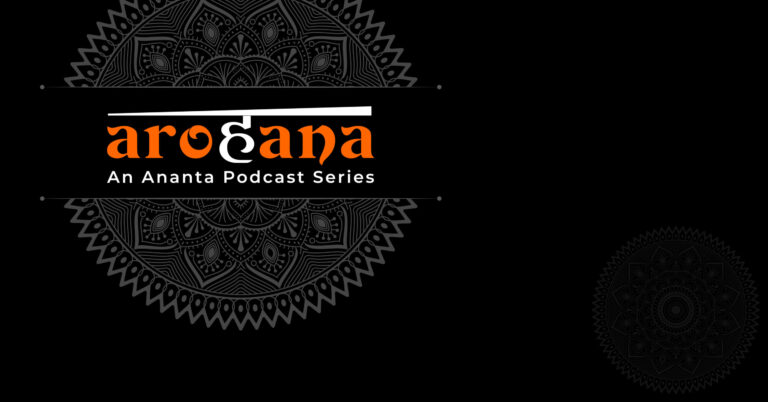Africa Shrugs Off Huawei Concerns
Despite reports that Chinese equipment was behind a data security breach in its secretariat early last year, the African Union in May signed a new memorandum of understanding on ICT cooperation with the controversial Chinese electronics firms Huawei. Even as the United States and other Western governments introduced bans on Huawei’s equipment, the Nigerian president visited one of the Chinese firm’s Beijing research centres in late May. The governments of major Huawei markets in Africa, like Nigeria and Kenya, have largely remained quiet about the issue.
A South African analyst noted Huawei dominates the telecom and broadband infrastructure of the continent in almost every possible sector, largely because Western companies have not ventured into many local markets and never at Chinese price points. As he writes, “In many cases, the choice isn’t between Huawei and another contractor, but between Huawei and no internet at all.” Huawei’s sales in Africa total nearly $ 6 billion a year, about 60% of which comes from its telecom equipment and related services. The rest comes from cellphone sales.
Sensitivities regarding Chinese 5G infrastructure are largely irrelevant to Africa and that is unlikely to change for several years to come. The GSMA Mobile economy report for 2019 shows that seven per cent of Africa’s mobile connections are 4G. Even by 2025, only 23% of African connections will be 4G. The report projects 3G overtaking 2G coverage only at the end of this year. However, sub-Saharan Africa will be the world’s fastest growing region for new mobile subscribers until 2025 with a compound annual growth rate of 4.5% during that period. Nigeria alone will see growth figures of 19% a year.
Indian telecom firm Airtel listed shares for its subsidiary Airtel Africa on the London Stock Market in late June. Airtel Africa provides phone and mobile payment services in 14 countries in East, West and Central Africa. The share were offered at 80 pence, indicating a market capitalisation of $3.9 billion, but lost value soon after listing. The shares will also be available on the Nigerian stock market. Airtel decided to issue the shares as part of a larger debt-reduction strategy.
Huawei and the African Union sign a MoU to strengthen their technical partnership on ICT
How the US-China conflict over Huawei could play out in Africa
Chinese tech giant Huawei wins support in Africa
The Mobile Economy
Airtel Africa slumps 16% at LSE debut
Airtel Africa Makes London Market Debut: All You Need to Know About the Company
Record Year For Fintech Funding
Africa’s fintech sector has raised $ 320 million in funding since 2015 and its ecosystem has grown 60 per cent in the past two years, according to a new report “Finnovating for Africa 2019: Reimagining the African Financial Services Landscape” by the agency Disrupt Africa. Last year was the best for the sector with $ 132.8 million in funding being raised. The number of African fintech firms has increased from 301 to 491 since 2017. Last year 210 African tech startups in all sectors raised $334.5 million, according to the same group’s “African Tech Startups Funding Report,” with Nigeria leading the way among the 28 countries that were tracked. In fintech specifically, South Africa was the lead country with Nigeria and Kenya close seconds and thirds.
Ghana, however, has emerged as the fastest growing market for mobile money in the continent. Phone-based digital accounts have increased in the West African country sixfold between 2012 and 2017 with nearly a fifth of cent of them being opened by people who were previously unbanked. The number of adults using the formal banking sector has increased 17 percentage points between 2014 and 2017. This is being attributed largely to the popularity of mobile-based payment systems.
Another African tech sector attracting interest is healthcare. Nigeria’s health startup, 54gene, recently raised $ 4.5 million in its seed round – the largest amount for such a firm in this sector. While small compared to the sort of funding fintech attracts, the company’s success is expected to encourage other medical and healthcare startups to seek funding. The firm 54gene specialises in the analysis and collection of African DNA.
Africa’s Fintech Ecosystem Raised $320m And Grew 60% In Two Years
Ghana is now the fastest-growing mobile money market in Africa
Startups trying to fix Nigeria’s broken healthcare system are winning global investor interest
African Bonds Find Buyers
Among the 10 best performing bonds this year, six are from Africa, says the Bloomberg Barclays Emerging Markets Sovereign Index. Some of them have performed extremely well: Kenyan bonds have given 20% return, nearly double the index as a whole.
Most African governments have junk or near-junk credit ratings but with a third of the global debt market giving negative or zero interest, investors have begun picking up these more exotic issues. Angolan Eurobonds, rated six levels below investment grade, rallied to their highest levels. Mozambican bonds have found buyers despite the government being in default.
The Nigerian government is planning a bond issue for its diaspora to ease its financial difficulties. The country successfully issued $ 300 million worth of such bonds in 2017. India and Israel are cited among African analysts as other successful examples of countries that have issued financial instruments targeted at members of their diaspora, normally offering below-market returns as part of a “patriotic discount.”
Not all African diaspora bonds have been successful. Ethiopia has twice issued such bonds, once in 2008 and again in 2011, with mixed results. Nigeria’s success is attributed to a flexible structure that was accessible to a broad variety of overseas Nigerians. The bond was also listed with regulators in foreign countries. Ethiopia’s failure to do so with the US Securities and Exchange Commission resulted in $ 6.5 million in fines being imposed by the regulator. Ghana and Kenya have seen a number of their bond issues undersubscribed for a variety of reasons, mostly revolving around doubts about the issuing government’s financial credibility.
The World Bank estimates the diaspora savings of sub-Saharan Africa to be above $ 30 billion with the figure rising to over $ 50 billion if North Africa’s considerable overseas population is added.
African Junk Bonds Are the Latest Trophy in the Global Hunt for Yield
How bonds aimed at the diaspora can raise crucial funds for Africa
INVESTINGFROMABROAD
Preliminary Estimates of Diaspora Savings
Zimbabwe’s Currency Crisis
Zimbabwe’s economy is struggling under triple-digit inflation, a fallout of the country’s continuing inability to maintain a stable local currency. The crisis has been compounded by a ban on the use of dollars for local transactions and a drought that has nearly halved the annual harvest. Inflation reached 175 per cent in June despite the government running a small budget surplus and raising interest rates to 50%.
The opposition and some economists have argued the government needs to loosen its grip on the economy, most of which is controlled by the state and the small ruling circle. This has dissuaded desperately needed foreign investment. An intra-party coup nearly two years ago led to the overthrow of Robert Mugabe, the dictator who had ruled Zimbabwe for three decades.
An earlier period of hyperinflation had led Zimbabwe to abandon its worthless local currency and dollarize the economy. Even the rupee, with a dozen other foreign currencies, was granted the status of legal tender. The new government re-introduced a dollar-backed local currency in 2016 but it lost value quickly. It also introduced digital payments but high transaction costs and taxes have made this unpopular. Another supposedly dollar-linked digital currency, RTGS, was introduced in February. The ban on the use of foreign currencies followed. But with economic fundamentals in such poor shape, the dollar exchange rate of RTGS has seen the currency halve in value and further feed the present inflation spiral.
An economist’s first-hand description of the consequences of the dollar ban in Zimbabwe at a time when the locals have no faith in their own currency.
Can you have a currency without trust? My week in Harare
Why Zimbabwe is running on empty, again
Millions face hardship as Zimbabwe comes close to ‘meltdown’
Ebola Emergency
A year-long ebola virus breakout in the Democratic Republic of the Congo was officially declared “a public health emergency of international concern” by the World Health Organisation in mid-July. The outbreak has claimed over 1,600 lives with nearly 2,500 people having become infected. The declaration does not result in any trade or travel restrictions.
Bringing the Congo outbreak under control has been hampered by the lack of international funding and the provision of medical drugs. One reason for this disinterest has been that the disease has yet to spread outside the Congo. New vaccines by Merck and Johnson & Johnson have been distributed but attacks on vaccine workers has been a problem. The World Bank has been criticized for holding back on funding it has received to tackle the epidemic. Ebola has now been detected in Goma, a city that borders Rwanda and Uganda, raising the prospect of the virus soon crossing borders.
Ebola outbreak in Congo is a public health emergency of international concern, WHO says
Ebola Reaches DRC Border City of Two Million, WHO Responds
The World Bank Has the Money to Fight Ebola but Won’t Use It
Too Many Summits
Japan will host its seventh summit with African leaders in August while Russia will hold its first in October. China concluded its version a few months ago. India will host its next summit next year as will the European Union. South Korea and Turkey are among the other countries who have joined the Africa summit fray. But African leaders are increasingly complaining about the plethora of such events and the costs involved in attending so many such events. There is also evidence of growing domestic criticism about African leaders who spend time and money attend such summits.
Eurasian powers seek African influence via development summits


























